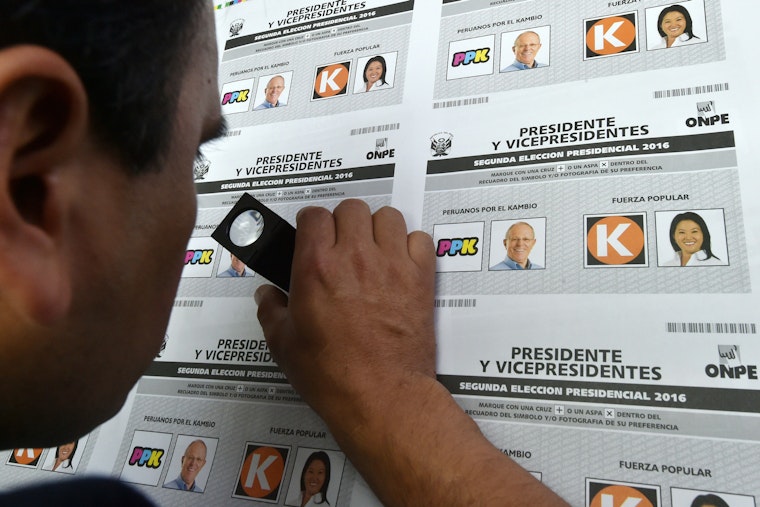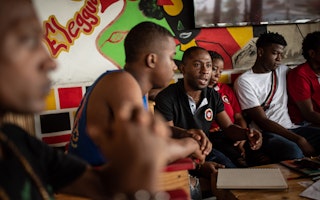An End to Peru’s Presidential Race Must Mark the Start of Electoral Reform
By Ronnie Farfan

So far, Peru’s presidential election has been legitimate, convened in full compliance with the country’s legal requirements. But the way the process has unfolded—the remaining two candidates will battle it out in the final round on June 5—has exposed the country’s institutional fragility, so much so that citizens are questioning the validity of election rules and the actions of election authorities.
The process has been marred by loopholes, vague rules, and conflicting legal interpretations. Nineteen political parties nominated candidates; after the campaigns kicked off, some were disqualified when a new law amended the rules midstream. There have been questions about the role of campaign financing and the use of political propaganda. Some candidates had corruption charges or provided false information in their personal records.
None of this is particularly surprising, given Peru’s current election rules, which allow political parties to withdraw candidates in the final hours before election day and candidates to avoid disclosing how their campaigns were financed without much consequence.
But such situations pose a threat not only to the election process, but also to the candidate who eventually wins, as their victory may be seen as illegitimate. The absence of clear election rules blurs the line between what is legal and what is not, and further alienates people from the government. It reinforces the notion that citizens’ political opinions and actions are little more than a formality. In fact, recent polls show that the majority of Peruvians feel that the country is not advancing and, while voting is currently mandatory, half would choose to not vote if it was voluntary.
Both candidates competing in the second round of Peru’s elections have pledged to push for electoral reform and have signed a joint commitment to that end. Civil society will need to hold the next president to this commitment, as well as push for even greater reforms.
To that end, Asociación Civil Transparencia has launched a website [link in Spanish] that allows Peruvians to view campaign expenditures, compare the various proposals put forth by the candidates, monitor the government’s various Twitter accounts for neutrality, and verify the information that the candidates release about their backgrounds. We also are pressing for institutional reforms to strengthen democracy, and have put forward a series of proposals to improve the efficiency of congress, the judiciary, public administration, and election processes.
These proposals include creating transparency mechanisms for the financing of political parties, having members of Congress hold public meetings with their constituents in the regions they represent to listen to their needs and demands, and improving the process for selecting judges for the Supreme Court. Lastly, Asociación Civil Transparencia is also in the process of building an online platform that will allow Peruvians to submit and debate their own proposals for strengthening the country’s democracy.
In recent years, Peru’s healthy growth has alleviated poverty and improved the living standards of many. But institutional weaknesses need to be addressed. If Peru wants its citizens to feel they are fairly represented, it must make its electoral process transparent and accountable to the voters who participate in it.
Asociación Civil Transparencia is a grantee of the Open Society Foundations.
Ronnie Farfan is the coordinator for the Institutional Reforms Project at Asociación Civil Transparencia.


